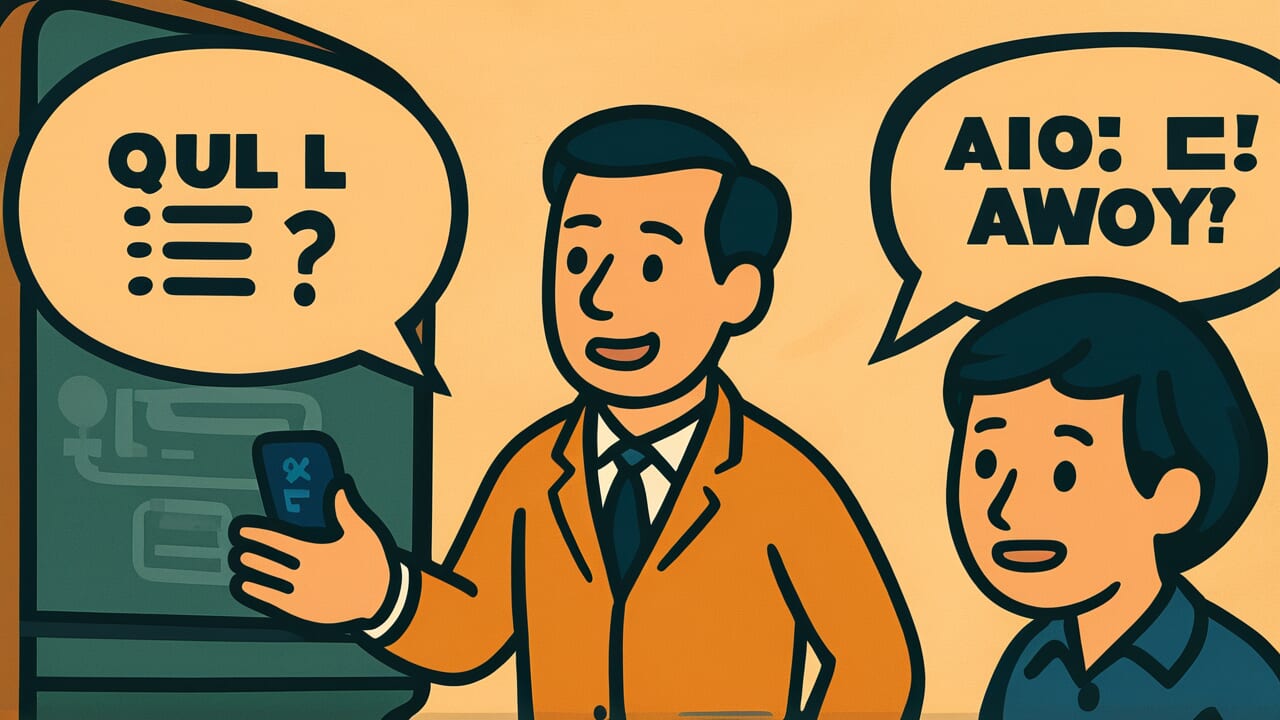How to Read “ask a silly question, get a silly answer”
Ask a silly question, get a silly answer
[ask uh SIL-ee KWEST-chun, get uh SIL-ee AN-ser]
Meaning of “ask a silly question, get a silly answer”
Simply put, this proverb means that when you ask a poorly thought-out question, you should expect an equally poor response.
The basic idea is straightforward. If someone asks a question that seems pointless or obvious, they often get an answer that matches. The deeper message is about the connection between effort and results. When we put little thought into our questions, we usually get little value from the answers.
We use this saying when someone complains about getting unhelpful responses. It applies when people ask vague questions at work and get confused answers back. It also fits situations where someone asks something without thinking first. The proverb reminds us that communication works both ways.
What makes this wisdom interesting is how it reveals our expectations. Many people want detailed, helpful answers even when their questions are rushed or unclear. The saying points out this mismatch. It suggests that good communication starts with the person asking, not just the person answering.
Origin
The exact origin of this proverb is unknown, though similar ideas appear in various forms across different time periods. The phrase became common in English-speaking countries during the 20th century. It likely developed from older sayings about the relationship between questions and answers.
The concept reflects a time when direct communication was highly valued. In many traditional societies, asking good questions was seen as a skill. People understood that wasting someone’s time with thoughtless questions could damage relationships. This made the quality of questions important for social harmony.
The saying spread through everyday conversation rather than formal writing. Parents used it to teach children about thinking before speaking. Teachers applied it when students asked questions without listening first. Over time, it became a gentle way to point out when someone needed to be more thoughtful in their communication.
Fun Facts
The word “silly” originally meant “blessed” or “innocent” in Old English, coming from the Germanic word meaning “happy.” Over centuries, it shifted to mean “simple-minded” and eventually “foolish.” This change shows how language evolves to reflect social attitudes about innocence and intelligence.
The proverb uses parallel structure, repeating the same grammatical pattern in both halves. This makes it easy to remember and gives it a rhythmic quality. Many effective proverbs use this technique to stick in people’s minds.
Usage Examples
- Teacher to student: “You asked if fish get thirsty and I said they order water from Amazon – ask a silly question, get a silly answer.”
- Parent to child: “You wondered if the moon follows our car, so I told you it has a crush on us – ask a silly question, get a silly answer.”
Universal Wisdom
This proverb touches on a fundamental aspect of human communication that reveals our social nature. Throughout history, humans have survived by sharing information effectively. Those who asked thoughtful questions gained valuable knowledge, while those who wasted others’ time with poor questions often found themselves excluded from important conversations.
The saying exposes a basic truth about reciprocity in human relationships. When we invest little effort in our interactions, others naturally respond with similar energy levels. This isn’t cruelty but rather an unconscious social mechanism that encourages better communication. People who consistently ask well-considered questions build reputations as thoughtful individuals worth helping.
The proverb also reveals something deeper about learning and growth. Humans are naturally curious, but not all curiosity leads to wisdom. The difference lies in how we channel that curiosity into meaningful inquiry. Those who learn to ask better questions develop stronger relationships and gain more knowledge throughout their lives. This creates a positive cycle where thoughtful communication leads to better outcomes, which encourages even more thoughtful communication.
When AI Hears
Questions work like mirrors that reflect our thinking back to us. When someone asks a shallow question, listeners automatically adjust their answers downward. They match what they think the questioner can handle. This creates invisible thinking traps that people never notice.
The mirror effect happens because humans are natural teachers and helpers. We instinctively give answers that fit the person asking. Smart questions signal we want deep thinking. Silly questions signal we want simple responses. This automatic matching system shapes every conversation without anyone realizing it.
What fascinates me is how this creates perfect learning cycles. Curious people get rewarded with better information, making them even more curious. Lazy thinkers get basic answers, which keeps them comfortable staying lazy. It’s like humans built an invisible sorting system for knowledge. Everyone ends up exactly where their questions take them.
What … Teaches Us Today
Living with this wisdom means recognizing that communication quality starts with us. Before asking questions, taking a moment to think about what we really need to know can transform our interactions. This doesn’t mean every question must be profound, but rather that we should consider whether our questions will lead to useful answers.
In relationships, this understanding helps us become better partners and friends. When we ask thoughtful questions, we show respect for others’ time and knowledge. This encourages them to give us their best thinking in return. The opposite is also true – rushing into conversations without preparation often leads to frustration on both sides.
The challenge lies in slowing down enough to think before speaking. In our fast-paced world, we often feel pressure to ask questions immediately rather than taking time to formulate them well. However, this wisdom suggests that a few extra seconds of thought can save much more time later. The goal isn’t perfection but rather developing the habit of pausing to consider what we really want to learn before we ask.



Comments